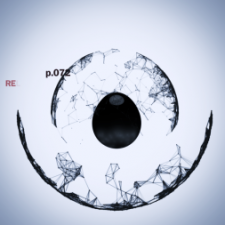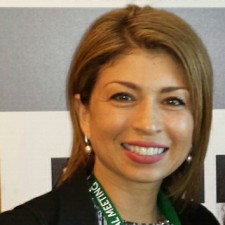Discussion:
You must be logged in to reply to this topic.
- 3 Rules to Spark Learning
-
January 28, 2018 at 3:53 pm #46722

Harry ShapiroParticipantA Spark… is a gift.
Ask them to accomplish something meaningful… like a specific a problem… and while this could be a course long objective, for my classes this often means something narrow and specific. An exercise that embraces in a sense of spirit of Piaget learning.. where the instructor is a facilitator and not an arbitrator of “right vs. wrong.”
And because there are college level classes (and not grammar school classes) I often find that once a problem is solved, and appreciated and perhaps dissected that I can thoughtfully throw a “wrench” into the solution with a goal of not negating their solution/contribution but rather showing them the strength of it while they (then) attempt to see how it can be adapted and adjusted.
Finally sometimes rather than focusing on a problem/solution, it’s asking them to make a logical leap.. for example:
Asking students to raise their hands if they have spent time in a hotel room that has a microphone in it.
No hands are raised.
Then pointing out that every speaker phone has a microphone (which most hotel rooms have) and we have a short discussion of that. Then asking them to think about if any of them keep a microphone near them when they sleep, and asking them “to raise their hands if they think they do.”
Most hands go up.
A quick discussion showed they all made the leap, they sleep with their cell phones near them (which all have 1 or more microphones).
-
This reply was modified 6 years, 11 months ago by
 Harry Shapiro.
Harry Shapiro.
-
This reply was modified 6 years, 11 months ago by
 Harry Shapiro.
Harry Shapiro.
-
This reply was modified 6 years, 11 months ago by
 Harry Shapiro.
Harry Shapiro.
-
This reply was modified 6 years, 11 months ago by
 Harry Shapiro.
Harry Shapiro.
January 28, 2018 at 6:31 pm #46727
Prof. Karen GoodladParticipant@tracy creating that safe environment in which students can express what they are curious about (and when they are not successful) is so difficult and I have seen you do it with grace.
January 28, 2018 at 6:36 pm #46728
Prof. Karen GoodladParticipant@harry Challenging students assumptions is a great challenge for them. When they can leave out classrooms with a “spark” that was created by their classmates or by you then they win. Every time.
January 29, 2018 at 8:57 am #46770
Prof. G. LarkinsParticipantThank you, Karen, for sharing this vital information. It just confirms what I have been doing for the past few years, and that is to challenge my students to have the courage to become disruptors. How? To ask me a question about anything every class. Why? To see where that question can take us. By continuing to push them out of their comfort zone. When I see them moving right, I encourage them to move left. There is no penalty for that misdirection and the reward is more than a grade. It is a discovery about themselves that they perhaps never realized was there.
January 29, 2018 at 10:51 am #46776
Denise H. Sutton, PhDParticipantI ask a lot of questions of my students when I teach, and I love the moment (or the specific class) when I realize that they are starting to trust that process of learning, and maybe they are even trusting me a bit as well as their peers. After a class, I often mull over student comments and think “I should have said ________” (insert a better or more fully developed response!). So now I’ve started to keep track by jotting down notes, and I go back to my class and say “remember when Jane Doe said______, I’ve been thinking a lot about that and want to go back and revisit…” I try to keep my own learning experiences close–including the difficulty of successful communication. When that successful communication connection happens, I’m inspired.
January 31, 2018 at 7:35 pm #46954
Prof. Karen GoodladParticipant@george That push past their comfort zone is often scary but so rewarding but once there, as you said, they discover something about themselves that will help them get better and better.
January 31, 2018 at 7:37 pm #46955
Prof. Karen GoodladParticipant@denise, your own reflection is teaching your students that learning has no boundaries. When you are inspired to grow and explore, they too will reap the benefits of learning.
January 31, 2018 at 9:52 pm #46959
Anniechitlall1ParticipantBeing a clinical instructor in the dental hygiene clinic definitely presents the opportunity for student reflection and feedback. Both during and at the end of each clinical session, I always try to engage the students in positive feedback, we review questions as to what else could have been done in that clinical session. I always ask the students to tell me how they felt they could have improved that patient care process or maybe they felt that they accomplished everything that they set out to accomplish for that patient. I also allow them to make mistakes and then guide them to fix their errors. To spark learning I always tell them to come hungry for information and ask me questions at each step of patient care.
February 1, 2018 at 4:48 pm #46986
Prof. Karen GoodladParticipant@annie including reflection the way that you describe here is a great teaching method. When students reflect on their work they will have a great chance of identify what they have found success in and what needs to be improved. This can lead to great curiosity.
February 5, 2018 at 7:30 pm #47104
Ruth M.ParticipantAs an adjunct clinical instructor I try to help my students connect the dots from what is learned in the classroom to hands on practice in clinic. An orienting response is sparked when they see how- what they have learned in class, plays an important part in their ability to translate the information to their patients and others, and how this makes them feel. This in turn, sparks interest, strengthens connections, builds memory and integrates learning. I love to see this flow of events ; they have experienced learning! Sparking interest in clinic almost comes naturally- they are eager (and nervous) to put into practice what they have been taught. I try to have discussions and exchange of ideas about information learned, and encourage independent thought—I too experience learning.
-
This reply was modified 6 years, 11 months ago by
You must be logged in to reply to this topic.


